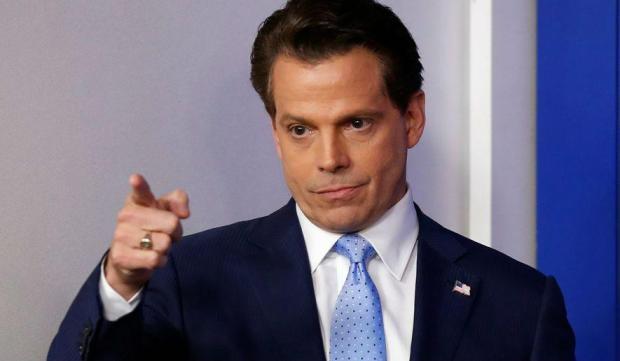Anthony Scaramucci: Only White House communications director with shorter tenure was forced to resign over Nazi Youth past

Anthony Scaramucci might occupy a few lines in future political history books with his remarkably short tenure, but it is not even the shortest. Forced out 10 days after he started, his brief stint was marked by public battle with former White House chief of staff Reince Priebus only to have John F. Kelly, the new chief of staff, orchestrate his removal, according to two people knowledgeable about the decision.
But John O. Koehler, who was the chief communicator for President Ronald Reagan in March 1987, had an even shorter tenure of less than one week.
Koehler arrived at the White House with a glittering communications resume. He retired from the Associated Press in 1985 as an assistant general manager and took a job with the U.S. Information Agency, the now-defunct State Department arm used to promote U.S. diplomatic efforts among foreign audiences.
The German-born Koehler took over in the waning years of the Cold War with personal and professional animosity for the Soviet Union. He translated for the U.S. Army during World War II as a teenager before Soviets closed in on his hometown of Dresden, the eastern German city that sat on the Red Army's southern approach to Berlin. He then served as a U.S. Army officer in the 1950s.
He told the Associated Press on Feb. 18 that he accepted the job during a 15-minute meeting with Reagan, adding that "I am going to be as low key as I can."
But like Scaramucci, whose appointment triggered the resignation of former press secretary Sean Spicer, the controversy surrounding Koehler's appointment began even before his first day in the West Wing.
Soon after Koehler's hiring announcement, NBC News reported that he had been a member of a Nazi youth group when he was 10.
Koehler said he disclosed his participation in Jungvolk, the Hitler Youth program used to indoctrinate young boys with Nazi ideology through outdoor activities, when he went through the security clearance process, The Post reported Feb. 20, 1987 - eight days before he was scheduled to take over the position.
The voluntary involvement of German youth was later compulsory in 1939, and some were pressed into full military service. Koehler called it "the Boy Scouts run by the Nazi party," and said he spent about six months in the program.

Koehler sought to downplay his involvement after news of the disclosure was circulated in the media, apparently catching the White House off guard.
"If you lived in Germany at that time and were of a certain age, you had something to do with the party. Do you really begin to think at that age?" Koehler told The Post.
"Having been a newspaperman in this country for more than 30 years, I think this is a black day in journalism," Koehler said.
The next day, on Feb. 21, The Post reported that Reagan said he held confidence in Koehler despite public grievances between first lady Nancy Reagan and the president's chief of staff, Donald Regan. Sources said Mrs. Reagan, who was a friend of Koehler, pushed for his appointment.
Regan, in turn, was frustrated by the "rushed appointment" of Koehler, who said that Koehler's involvement in the German youth group may have been scrutinized with a slower process, and blamed Nancy Reagan for the media firestorm.
The episode further angered Republicans, who expected the White House to outflank critics in the Iran-Contra scandal and ended up bogged down in West Wing staff controversies.
Officials cited Regan's comment about the first lady, made at a senior staff meeting, as a remark that angered President Reagan and hastened Regan's departure, The Post reported.
Koehler had few allies outside the Oval Office. The new chief of staff, Howard Baker Jr., asked Koelher to resign on March 7, 1987. Less than a week had passed since his first day on March 1.
In Reagan's letter accepting Koehler's resignation, the president wished Koehler and his wife, Dorothy, godspeed and good health.
"I admired the enthusiasm with which you plunged into the job, and your loyalty to me. Your selflessness was demonstrated again by your gracious recognition that Howard Baker must have every opportunity," the president said.
Koehler, who died in 2012, wrote in response: "I have believed totally in your goals for the United States and for the world from the first day we met in the early 70s. Thus, I welcomed the privilege to serve you albeit briefly."
"I recognize and endorse the importance that Senator Baker must have his own team with whom he will feel comfortable to carry out your program so vital for the American people," he added.
A little more than 30 years later, Scaramucci pulled a page from his micro-tenured predecessor to offer a strikingly similar remark over his quick exit.
"Mr. Scaramucci felt it was best to give Chief of Staff John F. Kelly a clean slate and the ability to build his own team," White House Press Secretary Sarah Huckabee Sanders said Monday.
© The Washington Post
Join our commenting forum
Join thought-provoking conversations, follow other Independent readers and see their replies
Comments
Bookmark popover
Removed from bookmarks